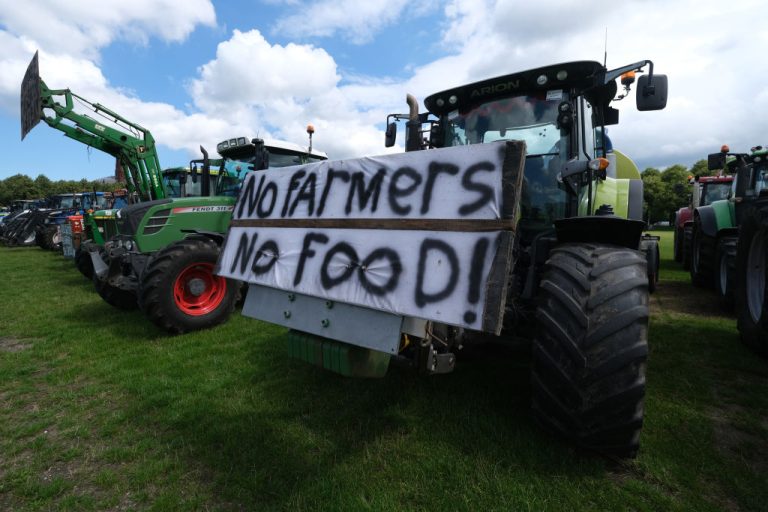A plan by the Dutch government calls for around 3,000 farmers — considered high emitters of the greenhouse gas nitrogen — to be parted from their land and compensated for 120 percent of its value, with a strict caveat: they will be barred from restarting their farming careers in the Netherlands or anywhere else in the European Union.
On Tuesday, May 2, the European Commission approved the scheme, with Brussels saying that “the positive effects transcend any distortions of the free market,” according to a statement by the Commission.
“Under the schemes, the beneficiaries guarantee that the closure of their production capacity is definitive and irreversible,” the website of the Commission reads, “and that they will not start the same breeding activity elsewhere in the Netherlands or within the EU.”
The Dutch government’s wishes to reduce the number of greenhouse gas-emitting farms has encountered staunch resistance from the agriculturalists, many of whom see the authorities’ planned actions as a massive overstep based on unscientific, politically motivated claims about the impact of farming on the climate.
- Dutch MP Argues Nitrogen Cuts Part of Globalist Agenda to Disown Farmers and House Immigrants
- Dutch Farmers Gather to Protest Nationalization of Their Property
A number of protests over the issue have resulted in clashes with Dutch police, injuries, and arrests.
Success
You are now signed up for our newsletter
Success
Check your email to complete sign up
Around 1.47 billion euros would be allocated for the farm buyback scheme, which would at first be voluntary, then become mandatory.
Commenting on the proposed policy, Dutch conservative influencer Eva Vlaardingerbroek wrote on Twitter that she doubts the legality of such a scheme.
“The whole idea of the EU was supposed to be about freedom of movement and freedom of workers. This is some next-level USSR stuff,” she wrote on Feb. 2.
Politically, the plan faces roadblocks in the Dutch Senate, given the massive recent growth of the rural BBB (Farmer-Citizen Movement) in the Netherlands since the beginning of the controversy.
In the Soviet Union and Communist China, farmers were violently expropriated from their land and often slaughtered in the name of destroying landlords and “rich peasants,” as well as collectivization. Soviet citizens were heavily restricted in where they were allowed to travel, live, and work, needing the correct propiska — authorization — in their internal passports to move around or leave the country.
In China following its economic reforms, farmers were allowed to run their own plots again, but increased faced the dreaded threat of forced demolition (拆遷), in which local officials or government-backed developers would seize their land, often in exchange for worse or undesired new accommodations.
China now has the world’s most massive real estate bubble, and the government has recently attempted drastic, blunder-ridden measures to revert fertile land to agriculture as environmental crises threaten China’s food supply.













